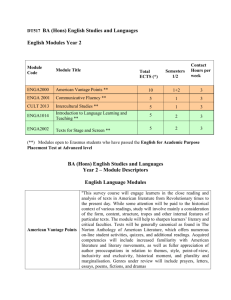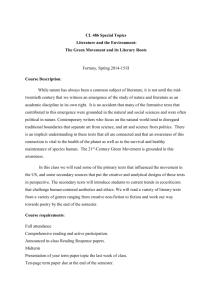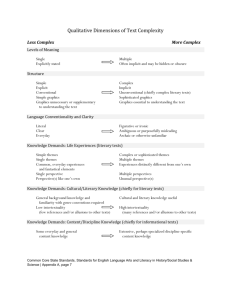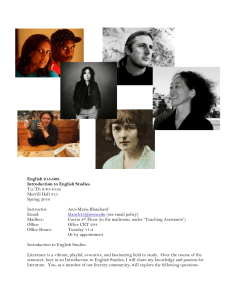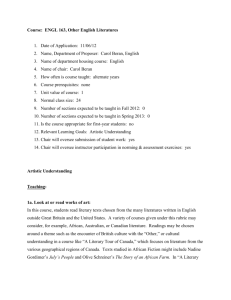sample 241 syllabus #2
advertisement
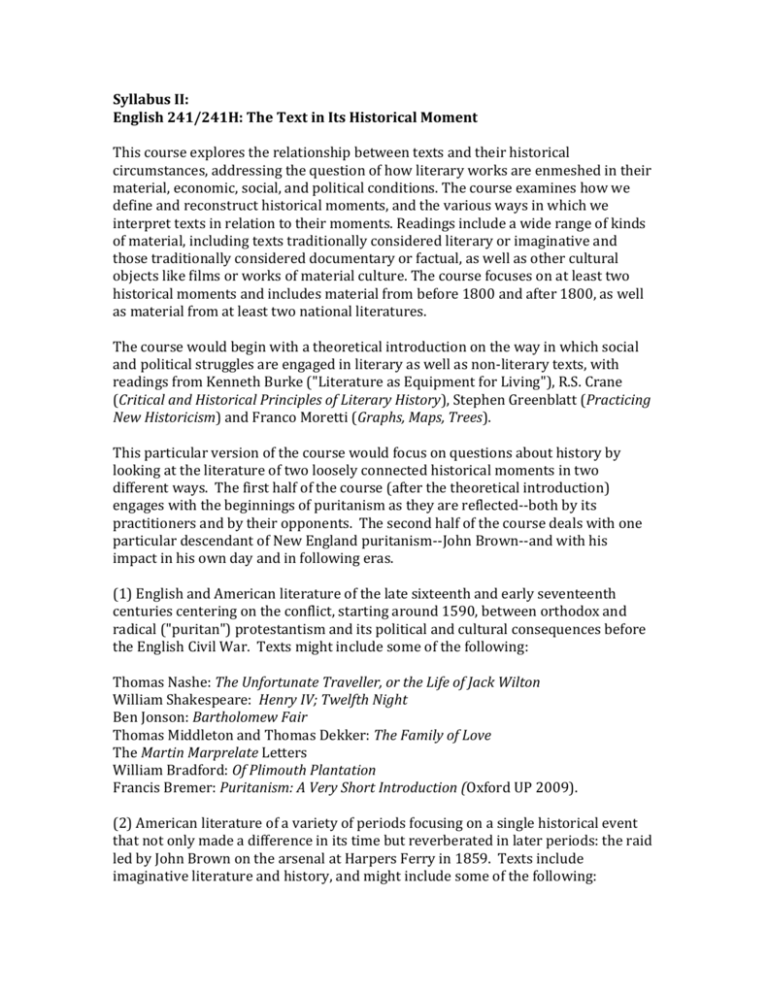
Syllabus II: English 241/241H: The Text in Its Historical Moment This course explores the relationship between texts and their historical circumstances, addressing the question of how literary works are enmeshed in their material, economic, social, and political conditions. The course examines how we define and reconstruct historical moments, and the various ways in which we interpret texts in relation to their moments. Readings include a wide range of kinds of material, including texts traditionally considered literary or imaginative and those traditionally considered documentary or factual, as well as other cultural objects like films or works of material culture. The course focuses on at least two historical moments and includes material from before 1800 and after 1800, as well as material from at least two national literatures. The course would begin with a theoretical introduction on the way in which social and political struggles are engaged in literary as well as non-literary texts, with readings from Kenneth Burke ("Literature as Equipment for Living"), R.S. Crane (Critical and Historical Principles of Literary History), Stephen Greenblatt (Practicing New Historicism) and Franco Moretti (Graphs, Maps, Trees). This particular version of the course would focus on questions about history by looking at the literature of two loosely connected historical moments in two different ways. The first half of the course (after the theoretical introduction) engages with the beginnings of puritanism as they are reflected--both by its practitioners and by their opponents. The second half of the course deals with one particular descendant of New England puritanism--John Brown--and with his impact in his own day and in following eras. (1) English and American literature of the late sixteenth and early seventeenth centuries centering on the conflict, starting around 1590, between orthodox and radical ("puritan") protestantism and its political and cultural consequences before the English Civil War. Texts might include some of the following: Thomas Nashe: The Unfortunate Traveller, or the Life of Jack Wilton William Shakespeare: Henry IV; Twelfth Night Ben Jonson: Bartholomew Fair Thomas Middleton and Thomas Dekker: The Family of Love The Martin Marprelate Letters William Bradford: Of Plimouth Plantation Francis Bremer: Puritanism: A Very Short Introduction (Oxford UP 2009). (2) American literature of a variety of periods focusing on a single historical event that not only made a difference in its time but reverberated in later periods: the raid led by John Brown on the arsenal at Harpers Ferry in 1859. Texts include imaginative literature and history, and might include some of the following: Literary Responses: Henry David Thoreau: "A Plea for Capt. John Brown" (1859) Herman Melville: "The Portent" (1859) Stephen Vincent Benet: John Brown's Body (1928) Russell Banks: Cloudsplitter (1998) James McBride: The Good Lord Bird (2013) Histories: Frederick Douglass: "John Brown" (1881) W.E.B. Du Bois: John Brown (1909) David Reynolds: John Brown, Abolitionist (2005) Assignments Two 4-6 page essays An in-class midterm examination (short answer and essay format) An in-class final examination (short answer and essay format)


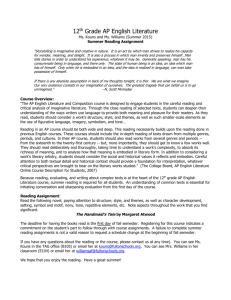


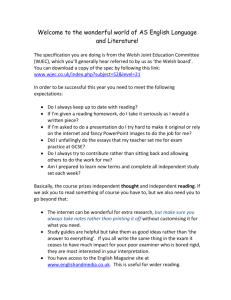
![Literature Option [doc] - Department of French and Italian](http://s3.studylib.net/store/data/006916848_1-f8194c2266edb737cddebfb8fa0250f1-300x300.png)
